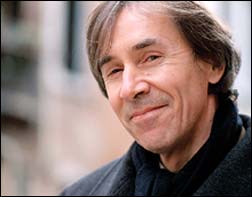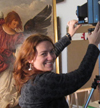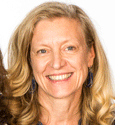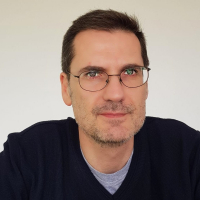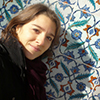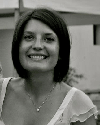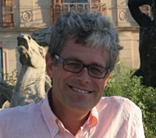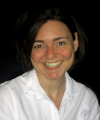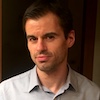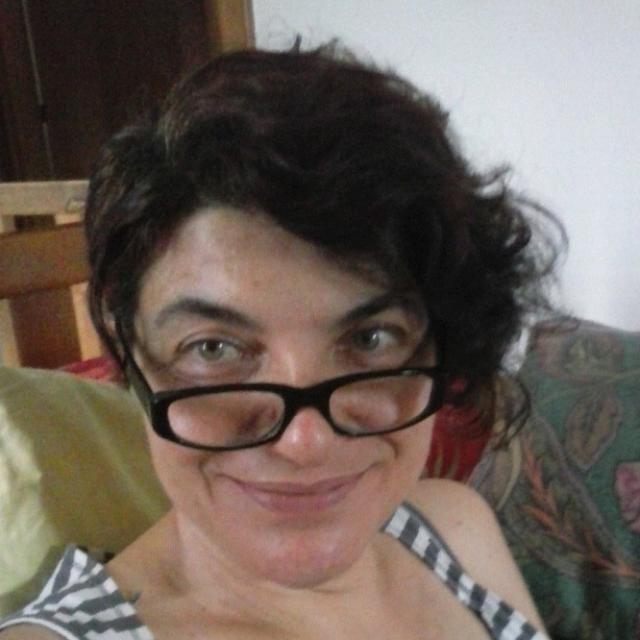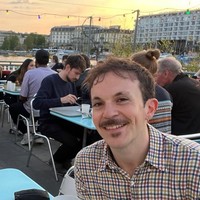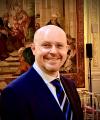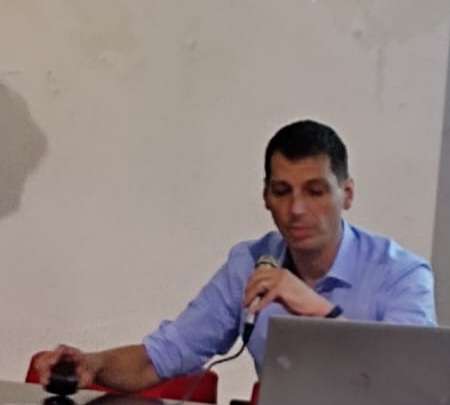Studiare
In questa sezione è possibile reperire le informazioni riguardanti l'organizzazione pratica del corso, lo svolgimento delle attività didattiche, le opportunità formative e i contatti utili durante tutto il percorso di studi, fino al conseguimento del titolo finale.
Calendario accademico
Il calendario accademico riporta le scadenze, gli adempimenti e i periodi rilevanti per la componente studentesca, personale docente e personale dell'Università. Sono inoltre indicate le festività e le chiusure ufficiali dell'Ateneo.
L’anno accademico inizia il 1° ottobre e termina il 30 settembre dell'anno successivo.
Calendario didattico
Il calendario didattico indica i periodi di svolgimento delle attività formative, di sessioni d'esami, di laurea e di chiusura per le festività.
| Periodo | Dal | Al |
|---|---|---|
| Sem. 1A | 24-set-2018 | 10-nov-2018 |
| Sem. 1B | 19-nov-2018 | 12-gen-2019 |
| Sem. 2A | 18-feb-2019 | 30-mar-2019 |
| Sem. 2B | 8-apr-2019 | 1-giu-2019 |
| Sessione | Dal | Al |
|---|---|---|
| Sessione d'esame invernale | 14-gen-2019 | 16-feb-2019 |
| Sessione d'esame estiva (gli esami sono sospesi durante la sessione di laurea) | 3-giu-2019 | 27-lug-2019 |
| Sessione d'esame autunnale | 26-ago-2019 | 21-set-2019 |
| Sessione | Dal | Al |
|---|---|---|
| Sessione di laurea estiva | 8-lug-2019 | 13-lug-2019 |
| Sessione di laurea autunnale | 4-nov-2019 | 9-nov-2019 |
| Sessione di laurea invernale | 30-mar-2020 | 4-apr-2020 |
| Periodo | Dal | Al |
|---|---|---|
| Festa di Ognissanti | 1-nov-2018 | 1-nov-2018 |
| Sospensione dell'attività didattica | 2-nov-2018 | 3-nov-2018 |
| Festa dell’Immacolata | 8-dic-2018 | 8-dic-2018 |
| Vacanze di Natale | 24-dic-2018 | 5-gen-2019 |
| Vacanze di Pasqua | 19-apr-2019 | 23-apr-2019 |
| Sospensione attività didattica | 24-apr-2019 | 27-apr-2019 |
| Festa della liberazione | 25-apr-2019 | 25-apr-2019 |
| Festa del lavoro | 1-mag-2019 | 1-mag-2019 |
| Sospensione dell' attività didattica | 20-mag-2019 | 20-mag-2019 |
| Festa del Santo Patrono | 21-mag-2019 | 21-mag-2019 |
| Festa della Repubblica | 2-giu-2019 | 2-giu-2019 |
| Vacanze Estive | 12-ago-2019 | 17-ago-2019 |
Calendario esami
Gli appelli d'esame sono gestiti dalla Unità Operativa Segreteria Corsi di Studio Culture e Civiltà.
Per consultazione e iscrizione agli appelli d'esame visita il sistema ESSE3.
Per problemi inerenti allo smarrimento della password di accesso ai servizi on-line si prega di rivolgersi al supporto informatico della Scuola o al servizio recupero credenziali
Per dubbi o domande leggi le risposte alle domande più frequenti F.A.Q. Iscrizione Esami
Docenti
 bernard.aikema@univr.it (per tutti), aikemaforstudents@gmail.com (per studenti)
bernard.aikema@univr.it (per tutti), aikemaforstudents@gmail.com (per studenti)
 +39 045802 8197
+39 045802 8197

Bassetti Massimiliano
 massimiliano.bassetti@univr.it
massimiliano.bassetti@univr.it
 045802 8376
045802 8376
 silvana.bianchi@univr.it
silvana.bianchi@univr.it
 rossana.cotroneo@univr.it
rossana.cotroneo@univr.it
 stefania.cretella@univr.it
stefania.cretella@univr.it
 marco.dallavalle@univr.it
marco.dallavalle@univr.it
 vincenzo.giannotti@univr.it
vincenzo.giannotti@univr.it
 piergiovanna.grossi@univr.it
piergiovanna.grossi@univr.it
 elisa.lerco@univr.it
elisa.lerco@univr.it
 francesco.lupi@univr.it
francesco.lupi@univr.it

Mastrocinque Attilio
 attilio.mastrocinque@univr.it
attilio.mastrocinque@univr.it
 +39 045802 8386
+39 045802 8386
 marco.menato@univr.it
marco.menato@univr.it
 marta.minazzato@univr.it
marta.minazzato@univr.it
 andrea.piasentini@univr.it
andrea.piasentini@univr.it
 lucasimone.rizzo@univr.it / lucasimone.rizzo@unipd.it
lucasimone.rizzo@univr.it / lucasimone.rizzo@unipd.it
 alberto.scandola@univr.it
alberto.scandola@univr.it
 carlo.vannini@accademiabelleartiverona.it
carlo.vannini@accademiabelleartiverona.it
 paola.venturelli@univr.it
paola.venturelli@univr.it
 sabrina.zago@univr.it
sabrina.zago@univr.it
Piano Didattico
Il piano didattico è l'elenco degli insegnamenti e delle altre attività formative che devono essere sostenute nel corso della propria carriera universitaria.
Selezionare il piano didattico in base all'anno accademico di iscrizione.
1° Anno
| Insegnamenti | Crediti | TAF | SSD |
|---|
2° Anno Attivato nell'A.A. 2019/2020
| Insegnamenti | Crediti | TAF | SSD |
|---|
3° Anno Attivato nell'A.A. 2020/2021
| Insegnamenti | Crediti | TAF | SSD |
|---|
| Insegnamenti | Crediti | TAF | SSD |
|---|
| Insegnamenti | Crediti | TAF | SSD |
|---|
| Insegnamenti | Crediti | TAF | SSD |
|---|
| Insegnamenti | Crediti | TAF | SSD |
|---|
Legenda | Tipo Attività Formativa (TAF)
TAF (Tipologia Attività Formativa) Tutti gli insegnamenti e le attività sono classificate in diversi tipi di attività formativa, indicati da una lettera.
Storia del rinascimento (i) (2020/2021)
Codice insegnamento
4S01253
Docente
Coordinatore
Crediti
6
Offerto anche nei corsi:
- Storia del rinascimento (i) del corso Laurea in Lettere
Lingua di erogazione
Italiano
Settore Scientifico Disciplinare (SSD)
M-STO/02 - STORIA MODERNA
Periodo
CuCi IIB dal 14-apr-2021 al 29-mag-2021.
Obiettivi formativi
Comprendere le origini e i più significativi sviluppi del concetto di Rinascimento, riconoscere ambiti importanti dell'esperienza storica che i metodi di ricerca adottati per lo studio di quella realtà hanno permesso di mettere in luce, applicarli all'esempio particolare preso in esame nel corso di quest'anno.
Programma
Il corso si tiene anche quest'anno interamente in lingua inglese.
Programma e bibliografia sono disponibili alla pagina web in versione inglese.
Chi volesse sostenere l'esame con una bibliografia italiana, utilizzerà invece la seguente, diversa (con un approfondimento su musica e storia religiosa):
Peter Burke, Cultura e società nell'Italia del Rinascimento;
Peter Burke, Il Rinascimento;
Manuel Bertolini, Un ambiguo sodalizio. Percorsi di musica e storia religiosa nella prima età moderna.
| Autore | Titolo | Casa editrice | Anno | ISBN | Note |
|---|---|---|---|---|---|
| Peter Burke | Cultura e società nell'Italia del Rinascimento | ||||
| Peter Burke | Il Rinascimento | il Mulino | |||
| James Shaw and Evelyn Welch | Making and Marketing Medicine in Renaissance Florence | Brill | 2011 | ||
| Alison Brown | The Renaissance (Edizione 3) | Routledge | 2020 | (recommended) | |
| Manuel Bertolini | Un ambiguo sodalizio. Percorsi di musica e storia religiosa nella prima età moderna | Unicopli | 2019 |
Modalità d'esame
Questionario scritto (a risposte aperte) sui testi di riferimento, integrato da colloquio orale di discussione dei risultati. La prova punterà ad accertare il grado di familiarità dello studente con i più significativi problemi e metodi nella storia del Rinascimento, e la sua capacità di comprendere e discutere i testi di riferimento.
In relazione alla situazione derivante dall'emergenza Coronavirus la modalità d’esame sopra riportata è provvisoriamente modificata, in accordo con le indicazioni di ateneo, in solo colloquio orale, che si svolgerà a distanza, avvalendosi della piattaforma che verrà comunicata con un avviso; si invita a seguire gli aggiornamenti che seguiranno. La modalità a distanza è comunque garantita per tutti gli studenti che lo chiederanno nell’anno accademico 2020/21.
Tipologia di Attività formativa D e F
| anni | Insegnamenti | TAF | Docente |
|---|---|---|---|
| 1° 2° 3° | "caro mostro. duecento anni di frankenstein" | F |
Nicola Pasqualicchio
(Coordinatore)
|
| 1° 2° 3° | Ciclo di conferenze musica/culture/civiltà | F |
Vincenzo Borghetti
(Coordinatore)
|
| 1° 2° 3° | Conferenze di Castelvecchio "Civici musei d'arte di Verona" | F |
Alessandra Zamperini
(Coordinatore)
|
| 1° 2° 3° | Corso C.T.G. | F |
Alessandra Zamperini
(Coordinatore)
|
| 1° 2° 3° | Documentazione grafica e fotografica dei reperti archeologici: dal disegno archeologico tradizionale a quello digitale | F |
Diana Sergeeva Dobreva
(Coordinatore)
|
| 1° 2° 3° | Giovedì' culturali dell'ISSR I ciclo | F |
Tiziana Franco
(Coordinatore)
|
| 1° 2° 3° | Roman pottery in the adriatic. production, typology and distribution. | F |
Diana Sergeeva Dobreva
(Coordinatore)
|
| 1° 2° 3° | Univero’ 2018 | F |
Tiziana Franco
(Coordinatore)
|
Prospettive
Avvisi degli insegnamenti e del corso di studio
Per la comunità studentesca
Se sei già iscritta/o a un corso di studio, puoi consultare tutti gli avvisi relativi al tuo corso di studi nella tua area riservata MyUnivr.
In questo portale potrai visualizzare informazioni, risorse e servizi utili che riguardano la tua carriera universitaria (libretto online, gestione della carriera Esse3, corsi e-learning, email istituzionale, modulistica di segreteria, procedure amministrative, ecc.).
Entra in MyUnivr con le tue credenziali GIA: solo così potrai ricevere notifica di tutti gli avvisi dei tuoi docenti e della tua segreteria via mail e a breve anche tramite l'app Univr.
Prova finale
La prova finale per il conseguimento del titolo consiste nella discussione di un elaborato scritto, di circa 30 cartelle di 2500 battute, su un argomento concordato con il relatore. Alla prova finale sono riservati 6 CFU.
L’elaborato scritto verrà caricato on line dal candidato e dovrà essere approvato dal relatore prima della sua discussione.
Le discussioni dell’elaborato finale avvengono davanti a sottocommissioni di almeno tre membri, dei quali uno sarà il relatore, uno il correlatore, il terzo un altro docente dell’Ateneo oppure un esperto esterno nominato dal Presidente del Collegio didattico. La discussione si svolgerà nei giorni precedenti la proclamazione in data concordata dai componenti la sottocommissione. Il risultato della discussione e la proposta di valutazione saranno tempestivamente comunicati dal Presidente della sottocommissione al Presidente della Commissione per la prova finale.
La Commissione per la prova finale procederà alla valutazione, tenendo conto della proposta delle sottocommissioni, alla proclamazione e alla comunicazione del voto di laurea. La verbalizzazione, da compilarsi secondo la procedura denominata “firma digitale”, sarà responsabilità del Presidente della Commissione.
La decisione di voto avviene senza la presenza dello studente o di estranei. La Commissione dispone di centodieci punti; il voto minimo per il superamento dell’esame è di 66/110. Alla prova finale è attribuito il punteggio massimo di cinque/110.
Il Collegio didattico incentiva il compimento degli studi nella durata normale del corso (ovvero nella durata concordata, per gli studenti a tempo parziale), assegnando 1 punto su 110 aggiuntivo a chi si laurei nelle sessioni dell’ultimo anno di corso. Ai soli effetti di questa incentivazione, agli studenti che abbiano trascorso un periodo di studio all’estero nel quadro degli scambi promossi dall’Ateneo, la durata del corso di studi normale è incrementata della durata del periodo trascorso all’estero. Se uno studente ha speso all’estero un periodo di studio entro il quadro di un accordo Erasmus, viene aggiunto 1 punto su 110 alla media pesata.
Quando il candidato abbia ottenuto il massimo dei voti, può essere concessa la lode, purché con decisione unanime.
L’elaborato scritto, oggetto della prova finale, può essere redatto in lingua diversa dall’italiano, previa approvazione del relatore e del Collegio didattico. La discussione deve comunque essere condotta in italiano.
La discussione dell’elaborato in sede di prova finale può eventualmente essere accompagnata dall'uso di strumenti informatici o di altro genere, se essi sono utili per un migliore chiarimento dei contenuti o per l'esposizione delle metodologie impiegate.
Lo studente può ritirarsi dall’esame finale fino al momento di essere congedato dal Presidente della Commissione per dare corso alla decisione di voto.
La commissione, constatato il valore insufficiente dell’elaborato, lo può ricusare. Nel caso in cui lo studente non consegua il punteggio minimo per superare la prova finale, dovrà migliorare l'elaborato o comporne uno diverso, presentandosi ad una successiva sessione di laurea.
Per gli studenti del CdL in Beni culturali, l'Esame di laurea si svolge in due momenti distinti:
- la discussione dell’elaborato finale, durante le due settimane precedenti la proclamazione;
- la proclamazione di laurea, in un giorno del periodo previsto dal calendario didattico per l'Esame di laurea.
Adempimenti amministrativi e scadenze domanda di laurea
Calendari discussione e proclamazione di laurea
Elenco delle proposte di tesi e stage
| Proposte di tesi | Area di ricerca |
|---|---|
| Ambiti di tesi | Art & Architecture - Art & Architecture |
| Stage | Area di ricerca |
|---|---|
| Lavorare in archivio | Argomenti vari |
